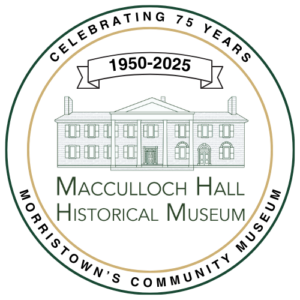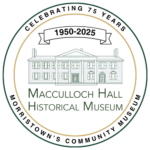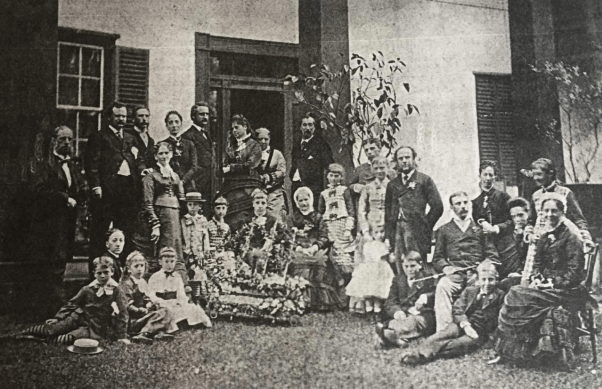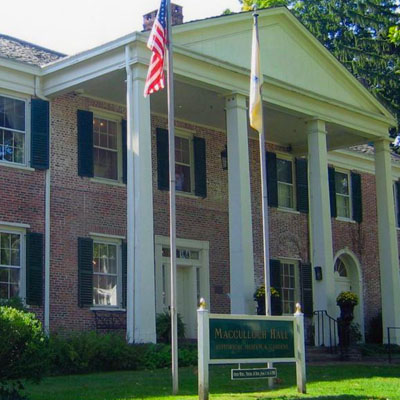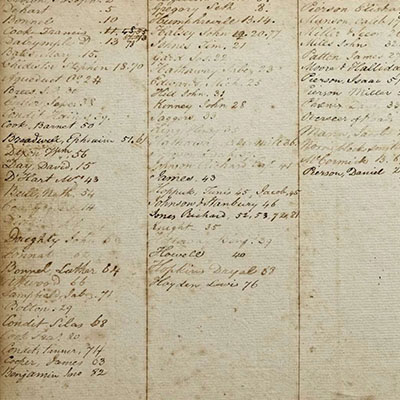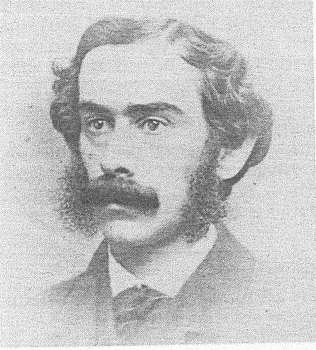About the Archives
Macculloch Hall Historical Museum's Historic Archives contain materials from five generations of the descendants of George (1775-1858) and Louisa (1785-1863) Macculloch, United States Senator Jacob Welch Miller (1800-1862), political cartoonist and illustrator Thomas Nast (1840-1902), and museum founder W. Parsons Todd (1877-1976).
Also a repository for local community history spanning over 200 years, the archives contain letters (personal and official), photographs, maps, illustrations and drawings, printed documents, certificates, presidential commissions, and books.
These reflect the family’s involvement in major events and movements of the 19th and 20th centuries like: enslavement, anti-slavery, the Civil War, Spanish-American War, World War I, U.S. Naval History, and women’s charitable and suffrage movements. The family's correspondence also reveal the personal stories, offering windows into the daily life and customs of a prominent local family with national and international ties over two centuries.
The histories of the Morris and Nicaragua (precursor to the Panama) Canals, and the founding of many civic, cultural, educational, political and relief organizations are traced here in the correspondence of generals, presidents, authors, family members and leading business figures. They range from George Washington, John Adams, and James Madison to J.P. Morgan, August Belmont, Alice Duer Miller and Theodore Roosevelt.
MHHM also holds the personal papers of its founder, prominent businessman and philanthropist, W. Parsons Todd, President of the Quincy Mining Company, with materials that document the museum’s founding and history over the past 65 years.
History of the Archives
In 1949, W. Parsons Todd purchased Macculloch Hall from George Macculloch’s great-grandson, Henry Wise Miller. Todd restored the house preserving its contents including drawers and trunks containing thousands of documents, news clippings, family letters, and photographs. In 1950, MHHM opened to the general public.
This trove of family-related materials remained in an unorganized state scattered throughout the house in drawers and boxes gathering dust. In 1977, the Museum trustees approached the Junior League of Morristown to interest them in researching and cataloging this collection.
Jane Odenweller, a poet and archivist from New Jersey, was selected to chair a taskforce to study its feasibility. She led a team of volunteers who organized this historically significant collection for research. Thanks to Jane Odenweller’s lifetime efforts, the story of this most remarkable family remains a vital part of American history.
